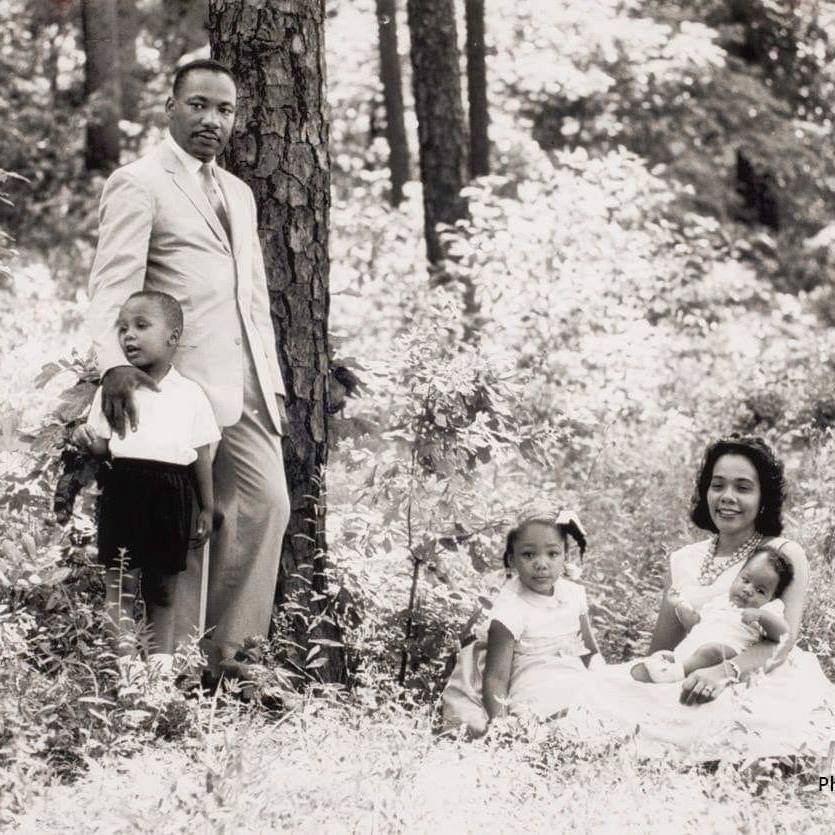One of the most jarring sentences in the Bible goes like this: “If I give away all I have, and if I deliver my body to be burned, but have not love, I gain nothing” (1 Corinthians 13:3). It jars us because Jesus said, “Greater love has no man than this, that he lay down his life for his friends” (John 15:13); and he taught that one of the ways to love our enemies and do good to those who hate us and bless those who persecute us is to give freely of our possessions (Luke 6:27–30). But here Paul says you can give everything away and even lay down your life and yet not be acting in love. You can make the final sacrifice and be lost for ever.
A Biblical Critique on All Our Activism
This means that right wing and left wing Christian political activity must be exposed to a radical biblical critique. On the right we are summoned to work for the rights of unborn humans, a strong defense, nuclear superiority, prayer in public schools, the support of Israel, family values, balanced budgets, etc. On the left we are summoned to work for a more just distribution of the world’s goods, nuclear disarmament, the end of interventionist politics in El Salvador and Nicaragua, ERA, programs to combat poverty and unemployment, etc. The Christian right and the Christian left are summoning us to action—and rightly so! If there is one thing Jesus cannot be accused of, it is indifference to the needs of people.
But there is a radical biblical critique which Christians on the right and Christians on the left must never forget: “If I give away all I have, and if I deliver my body to be burned, but have not love, I gain nothing.” Or to put it very bluntly: you can go to hell fighting for poverty programs and you can go to hell fighting for a prayer amendment, because love can never be defined simply as mere deeds; it always involves the condition of the heart of the doer. If we want to bring the message of the Bible to bear on the problems of the world around us, we need to realize that the Bible is much more radical than the agenda of either the right or the left. It says to both, “Though you give your body to be burned in the service of your agenda and have not love, you gain nothing.” Love can never be equated with anyone’s agenda because no agenda is love unless it comes from a certain kind of heart. We might be impressed with a person who gives a million dollars to build a hospital in Bangladesh, but God looks on the heart and queries the hidden motives of the soul. Christianity is not primarily an agenda for political activity; it is primarily a power that radically changes the human heart.
The Command to Love and the Nature of Faith
Last week we saw in Galatians 5:6 that the heart which is acceptable to God is not one which depends on its works—whether right wing circumcision or left wing uncircumcision—but rather one which trusts so fully in God’s grace that the result is a life of love. Love is an essential part of the process of salvation. It is not optional whether you love one another. No one can say, “I am saved by faith regardless of whether I love people or not.” For the only faith which saves is “faith working through love” (Galatians 5:6). Saving faith always gives rise to love and love gives evidence of genuine faith.
Today’s text picks up the theme of love from 5:6 and presses it home with a command in verse 13: “Through love be servants of one another.” Someone may ask, “Why should Paul command us to love if love is an inevitable result of faith (5:6), indeed, a fruit of God’s Spirit (5:22)?” The answer is that even though God is sovereign over his people and it is his Spirit that produces the fruit of love, nevertheless, God’s means of doing his work includes human exhortation. There is no contradiction between saying God brings about love in our hearts and saying that one of the ways he does it is to remind us of love’s importance with commands. But the fact that Paul has waited five chapters before he commands us to do anything, but trust God, warns us not to take this command as a “work of law” to be performed in our own strength to win God’s favor. Paul’s attack on works of the law has not been an attack on commands but on the teaching that we should try to fulfill commands in our own strength to earn God’s blessing. Commands are good and should be seen as a summons to have the obedience which faith produces. The command to love in Galatians 5:13 is a command to have the kind of free and confident heart that by its very nature has to love.
And I have found in my own experience that the Holy Spirit uses scriptural commands and especially the theological arguments for those commands to change my heart. And that is my aim as we look at 5:13–15. I pray that God will apply his Word to your mind and heart in such a way that love comes much more naturally and freely than it has before.
The logic of Galatians 5:13–15 is simple. First, Paul restates the foundation of the Christian life: “You were called to freedom, brethren.” Then, based on that divine call, he gives a twofold command. Negatively: “Do not use your freedom as an opportunity for the flesh.” Positively: “Through love be servants of one another.” Then to support this twofold command he gives a positive and a negative incentive to love. Positively: “For the whole law is fulfilled in one word, ‘You shall love your neighbor as yourself.’” And negatively: “If you bite and devour one another take heed that you are not consumed by one another.” The main point of the text is, “through love be servants of one another.” If you do this, you fulfill the whole law; if you don’t, you destroy yourselves.
Loving Service and True Freedom
Let’s focus first on the positive command in verse 13: “Through love be servants of one another.” Listen to what happens when you put this command together with the first part of the verse: “You were called to freedom . . . Through love serve one another.” You were called to freedom from servitude; now in love submit to servitude! Here’s the question we should ask: Why is love which serves the needs of others the only way Christian freedom can express itself? Why are the call to freedom and the call to love synonymous? When Paul says, “Don’t use your freedom as an opportunity for the flesh,” he means that if you try, you lose your freedom. As verse 1 says, you “submit again to a yoke of slavery.” The works of the flesh and the fruit of love are not two different optional ways to live in freedom. When you live according to the flesh, you are in slavery. But when you serve each other in love, you are in freedom. Why?
Because love is motivated by the joy of sharing our fullness, but the works of the flesh are motivated by the desire to fill our emptiness. The meaning of “flesh” in the book of Galatians is not the physical part of man, but man’s ego which feels a deep emptiness and uses the means within its own power to fill that emptiness. If it is religious, it may use law; if it is irreligious, it may use booze. But one thing is sure: the flesh is not free. It is enslaved to one futile desire after another in its effort to fill an emptiness which only Christ can fill. So when Paul says in verse 13, “Don’t use your freedom as an opportunity for the flesh,” he means, don’t surrender the freedom that you have in the all-satisfying Christ to return to the unsatisfying desires for mere physical pleasures or self-exaltation.
So works of the flesh are motivated by a desire to fill our emptiness. But love is very different—it is motivated by the joy of sharing out fullness. “Love does not seek its own” (1 Corinthians 13:5). When we love, we are not enslaved to use things or people to fill our emptiness. Love is the overflow of our fullness. Therefore, love is the only behavior that we can do in freedom. When God frees us from guilt and fear and greed and fills us with his all-satisfying presence, the only motive left is the joy of sharing our fullness. When God fills the emptiness of our heart with forgiveness and help and guidance and hope, he frees us from the bondage to accumulate things and manipulate people. People who devote large hunks of their life to surrounding themselves with the comforts of this world testify that God has not filled the void of their heart to overflowing. When God is our portion and we are truly free, then we will serve one another through love. Freedom flows forth in love just as surely as a bubbling spring flows forth in a mountain stream. But the flesh is like a vacuum cleaner: it sucks and sucks and just the moment it starts to feel full, somebody throws the bag in the garbage. The book of Galatians is written to show us how to become a mountain spring that serves the valley with the water of love.
Love Your Neighbor as Yourself
There is no more fulfilling way to live than to draw daily on God’s all-satisfying grace and let it flow through us to meet the needs of others. Verses 14 and 15 give us a positive and a negative incentive to live like this. First, verse 14: Live like this, “for the whole law is fulfilled in one word, ‘You shall love your neighbor as yourself.’” In spite of all the negative things that Paul has said about “works of the law,” it is not a matter of indifference whether Christians fulfill the law in their behavior. The good news is that love, which is an overflow of God’s grace, is what fulfills the law. All God was after in the law was people who are so satisfied by his grace that their lives are a spill-spout of love.
There is a lot of confusion today about the self-love referred to in this verse: “Love your neighbor as yourself.” The most common error is to assume that this is a command to love yourself and that self-love means self-esteem. Both of these assumptions are wrong. Paul and Moses (Leviticus 19:18) and Jesus (Luke 10:27) assume that all people love themselves; they don’t command it: “You shall love your neighbor as you (already) love yourself.” And the self-love they assume is not self-esteem but self-interest: all people want to be happy, even if they often don’t know what will really make them happy. We can know this is how Paul understands this verse because of how he applies it in Ephesians 5:28, 29. “Husbands should love their wives as their own bodies. He who loves his wife loves himself. For no man ever hates his own flesh, but nourishes and cherishes it, as Christ does the church.” In other words, self-love means the strong interest you have in your own health and safety and happiness.
“Love your neighbor as yourself” is not a command to love yourself. It is a command to take your natural, already existing love of self and make it the measuring rod of your love for others. There is not a harder command in the Bible than this one. It means: Want to feed the hungry as much as you want to feed yourself when you get hungry. It means: Want to find your neighbor a job as much as you are glad you have a job. Want to help your fellow student get A’s as much as you want to get A’s. Want to help the person stalled on the freeway as much as you are glad you are not stalled on the freeway. Want to give the poor softball player a chance to play as much as you want to play the whole game. Want to share Christ with your neighbor as much as you are glad you know Christ yourself.
Use all the creativity and energy and perseverance to do good things for others that you use in doing good things for yourself. Care about what happens to others as much as you care about what happens to yourself. Can you imagine what the church would be like if we were all like that: looking at the person to the right and to the left and feeling the same longing for their happiness that we feel for our own. Not only would the law be fulfilled, this place would be iridescent with joy, and the glory of God would be unmistakably present in our midst. And people would be converted! Let’s be like that in the power of the Holy Spirit.
The Tragic Alternative to Love
For if we don’t, verse 15 gives the tragic alternative: “If you bite and devour one another take heed that you are not consumed by one another.” A church of people who do not serve each other in love will destroy itself. God has been good to Bethlehem to pour out a spirit of love upon this people for 112 years. And my prayer is that we abound more and more in love for one another and for all men (1 Thessalonians 3:12).
And remember, we can only love if we are free. That is, love is motivated by the joy of sharing our fullness, not by the desire to fill our emptiness. Is it a coincidence that verse 15 describes what wild animals do when they are starving, not when they are filled (empty instead of content)? “If you bite and devour one another take heed that you are not consumed by one another.” When you are not filled with God, it is sweet to eat your enemy.
But, brothers and sisters, God has called us to the freedom of fullness which overflows in love, not to the slavery of emptiness which bites and devours and is never satisfied. In Jesus Christ, God offers us forgiveness, daily help and guidance, and hope for the greatest future imaginable. And it is all free, purchased by the death of Jesus, received by faith alone. The secret of love is freedom, and the secret of freedom is utter confidence in the love of God.
Which gives us the clue (returning to our starting point) why a person can give away all his goods and deliver his body to be burned and yet not have love. Such a person may not be acting in freedom. He may not be motivated by the joy of sharing a God-given fullness, but only by a deep longing to fill his emptiness. In that case, he is not acting in love and God is not honored as the all-satisfying source of fulfillment.
John Piper (@JohnPiper) is founder and teacher of desiringGod.org and chancellor of Bethlehem College & Seminary. For 33 years, he served as pastor of Bethlehem Baptist Church, Minneapolis, Minnesota. He is author of more than 50 books, including Desiring God: Meditations of a Christian Hedonist and most recently Coronavirus and Christ.








 Genesis 18:1-15 is one such instance when he, to use a colloquialism of the day, ‘called someone out,’ no doubt tickled and laughing. It takes place in the Story of the Three Visitors. Three Visitors visited Abraham. One says to Abraham, Sarah will have a son by next year this time. [If she was of child-bearing age, it would be believable, but she is not, Sarah was I her 90’s.] The hilarious part begins in verse nine.
Genesis 18:1-15 is one such instance when he, to use a colloquialism of the day, ‘called someone out,’ no doubt tickled and laughing. It takes place in the Story of the Three Visitors. Three Visitors visited Abraham. One says to Abraham, Sarah will have a son by next year this time. [If she was of child-bearing age, it would be believable, but she is not, Sarah was I her 90’s.] The hilarious part begins in verse nine.

 To unpack this, we are talking about radical change. You may ask, how does this relate to Consecration or Lent? Keeping in mind that no one can tell you what to pray about, this is a suggestion – If you plan to take part in this time of introspection, you may consider entering into prayer to discuss your radical change in becoming an active Christian Warrior with God.
To unpack this, we are talking about radical change. You may ask, how does this relate to Consecration or Lent? Keeping in mind that no one can tell you what to pray about, this is a suggestion – If you plan to take part in this time of introspection, you may consider entering into prayer to discuss your radical change in becoming an active Christian Warrior with God.
